- Home
- Gerald Hammond
The Executor (Keith Calder Book 10) Page 10
The Executor (Keith Calder Book 10) Read online
Page 10
Shadows were lengthening. One or two lights came on in the house; otherwise, there was no sign of the widow.
Keith circled the house, keeping well back in the undergrowth. There was no sign of disturbed ground. He found a summerhouse, a detached garage and a toolshed, but none of them contained anything of more interest than a Mercedes drophead. Soon it was too dark to search further.
He made his way back and approached the drive obliquely. After a little exploration, he settled himself between two rhododendrons. The place, where it was not walled, was well fenced and a visitor, on foot or with a vehicle, would pass within a few yards of him.
He waited, with the patience of the experienced stalker. Only the stars were out. The night was warm, he was not uncomfortable and the noises of the night, which would have unsettled any town-bred watcher, were as familiar to him as the ticking of his study clock. An owl was hunting nearby.
He must have slept, but that did not matter; he knew that any change in the pattern of sound would have awakened him. A brilliant moon was up and the night was quiet with the silence which precedes the dawn, but he knew that something had roused him. A sound, half-heard, came back into his memory. A car had stopped out in the road.
Keith smiled grimly in his dark bower. He had the revolver and his knife; and he would have the advantage of surprise.
Something rustled, not far away, and it was not one of the small animals which had been around him earlier. He made ready for a shadow which would pass between himself and the moonlit grass. A twig snapped, further away this time. How many were coming? It had gone quiet again.
The car at the road started up and drove away.
Keith waited, ten minutes, twenty, half an hour, but there was no more movement. Nobody had passed him, he could swear. He moved softly to one side, to a position near where he had sat with Ronnie and Deborah to study the front of the house. And there he saw the answer, the black silhouette of his jeep against the moonlight beyond. Somebody had come to see if he was as good as his word and, seeing his jeep and knowing that Keith would not be far away, had departed.
He shrugged, sat down and allowed himself to dose again. There was nothing to be gained by kicking himself. He would rather have kicked Mary Bruce, or that damned moon.
*
The minibus was back before the sun was high and reversed in beside the jeep again. This time Philip Stratton was alone, and Keith, as he climbed inside, felt a sense almost of bereavement. He had become used to the sometimes irritating but always interesting presence at his side.
‘The Scotsman and the Glasgow Herald will have men out within the next hour or so. The others will take longer. Your wife sends greetings,’ Philip said, ‘and also this and this,’ passing over a clean shirt, a disposable razor and a sealed envelope, ‘also some breakfast which I will now proceed to fry for us both.’
Molly’s note, in her round and somehow very suitable hand, ran:
Ronnie phoned. Nothing happening at Dunbar. Will phone again later.
Two different lots of police phoned. Chief Inspector Ovenstone from Edinburgh wants another statement from you. No hurry, whenever suits you. (A phone-number followed.)
And Inspector Cathcart, Strathclyde, phoned. Wants you to know that Danny Bruce had some heavy boxes moved into an outbuilding behind Golightly’s Music Shop in Falkirk. If there’s any chance of nailing D.B. again, or his daughter, he’ll come running.
Try to be good. M.
Keith passed the note to Philip, who scanned it quickly. ‘Could you call Molly for me?’ Keith asked. ‘Tell her, when Ronnie calls, to ask him to look into this Falkirk thing.’
‘Now?’
‘After you’ve made my breakfast,’ Keith said. First things always came first. ‘I’m surprised Edinburgh doesn’t sound more urgent.’
‘What else could you tell them?’
‘Nothing. But they don’t know that.’
*
A car bearing a PRESS sticker – the first of many, Keith hoped – came bustling up the drive as Keith, refreshed and tidy, prepared to depart. He squeezed past and drove away. Philip would brief the arrivals and Keith had already made up his mind that he would only answer questions from the police, and not too many of those.
But it was to the police that Keith went first.
There is no respite in murder enquiries. On the other hand, every policeman must have some time off in the week and Sunday overtime is expensive. The nearest police station was manned only by a clerkess who directed him to a mobile headquarters parked behind the building. Here he found the team investigating Robin Winterton’s murder, represented at the moment by a plain-clothes detective inspector and a uniformed w.p.c. Other desks were unmanned and the end wall was screened by a curtain.
The two officers were indulging in a little flirtatious badinage when Keith interrupted them. The inspector, who had compensated for this compromising intrusion by standing on his dignity at first, thawed when Keith introduced himself as the executor of the estate.
‘Not that we can do much more out here,’ Inspector Fleet said, over a cup of tea brewed by the w.p.c. ‘In fact, we could unseal those rooms if the old lady’s being inconvenienced. We’ve done all the searches and enquiries around here that you could think of. From now until something breaks, the real work goes on in Edinburgh and in liaison with other forces. Sooner or later, somebody’ll talk too loud in a pub, or try to sell something from the house, or get lifted for something else and cough this one. Then it’ll all start again. Until then, it’s wait and pray.’
‘I may have what you’re waiting and praying for,’ Keith said. He produced the table-lighter. ‘I was at Halleydane House late yesterday, and a lady from Bruce, the antique dealers in Buchanan Street, Glasgow, arrived with this. Mrs Winterton agrees that her husband had one like it, but she wouldn’t identify it despite the initials. I’m afraid it’s been handled by the world and his wife. It was sold to them by a youngish man with a finger missing off his left hand. The shop manager was quoted as saying that his hands were well kept except for a black-rimmed first finger on the right hand. To me, that suggests a pipe-smoker.’
The inspector allowed himself to look faintly pleased. ‘I’ll go and see the old lady myself,’ he said.
Keith was on the point of warning the inspector that the place might be hopping with reporters, but decided that that would only provoke questions which he was not yet ready to answer. ‘I hope you can pin her down,’ he said. ‘I couldn’t.’
‘Strathclyde can visit the dealer tomorrow. With a description like that . . .’ The inspector stopped. ‘Bruce? That wouldn’t be Danny Bruce?’
‘I believe so,’ Keith said. ‘The fence.’
‘You know that, do you?’ Inspector Fleet frowned and tapped an irregular rhythm on the desk. ‘Why would Danny Bruce be sending a lady all this way on the chance that something he’d bought was stolen? His usual form would be to rub his hands and use it to pressure the seller into doing a few more little jobs for him.’
‘I wondered the same thing myself,’ Keith said. ‘It may be that he thinks that withholding evidence in a murder case is too hot even for him.’
‘Since when did Danny Bruce think that way?’ the inspector asked rhetorically. ‘The story doesn’t stand up, but the description sounds circumstantial enough to be real.’
As he drove off, Keith was more concerned over a different question. The police were treating Duncan Laurie’s death as murder. They would have found Danny Bruce’s name in Laurie’s diary. Keith had pointed out a possible link between the two deaths. So why had the inspector not jumped out of his chair when Danny Bruce’s name cropped up again?
The brown handbag, still in its polythene cover, was in the back of the jeep. Keith had come with the intention of handing it over. But if Inspector Fleet was being kept in the dark by his colleagues, why should Keith enlighten him about something quite unconnected with his own case?
*
The wallpaper a
bove Mrs Winterton’s telephone had been pristine, unblemished by the scrawled phone-numbers with which less house-proud folk desecrate their walls. The telephone sat on a glass-topped table, and beneath the glass Keith had noticed a single business-card, presumably that of the business most frequently telephoned. It was the card of a local taxi firm and he had noted the address.
The firm proved to be a small one, run from a modest house in a large village and conveniently close to the local garage. One low-priced but well-kept saloon stood at the door, its roof carrying an illuminable sign with the name Moir and a phone-number.
A stout woman with a cheerful face answered the door to Keith’s ring, drying her hands on an apron. ‘Were you wanting a taxi?’ she asked. ‘My husband’s away with the other one, but I could take you as long as it isn’t for more than an hour. The kirk-goers,’ she added in explanation. She reached for a chauffeur’s cap and popped it on to a head covered with ginger curls, an incongruous and deliberately comic picture.
‘I don’t need a taxi,’ Keith said, smiling. ‘I’m Mr Winterton’s executor and I was wondering whether there are any outstanding accounts.’
‘You’d better come inside,’ Mrs Moir said. She took him into what Keith could only think of as a living-kitchen and offered him an old but comfortable wing-chair. She began to riffle through an untidy pile of paper on a sideboard. ‘I think they were up-to-date,’ she said. ‘Mr Winterton – poor old chap – was a prompt payer and the old lady always paid cash. Took a pride in it. Liked to let you see that she was carrying a big bundle of notes. She was the one I’d have expected to be mugged, carrying all that money around. I warned her more than once. No, there’s nothing outstanding.’
‘They used you a lot, did they?’ Keith asked.
She went back to her washing-up, bouncing her voice back to him off the wall above the sink. ‘He didn’t, not unless he was going by train or plane. She used us whenever she went anywhere without him. She said her husband reckoned it was cheaper than running a second car. Maybe so, but my guess is that he didn’t want her to drive. He wasn’t daft; she’s not the type to give way to anybody, whether it’s her right of way or not.’
Keith suppressed a chuckle. She had summed up his own view of the widow to a nicety. ‘Do you know whether your husband took her to Edinburgh on Monday?’
‘He didn’t. He was away to Gorebridge to fetch a mannie whose car had broken down. I took her myself in the other car. Dropped her right outside the Queen’s Theatre, where her friends were already waiting for her.’
‘And fetched her back?’
‘No. One of her friends would have taken her home. That was the usual arrangement. Happened about every second week.’
‘I see . . . .’ Keith said slowly. ‘And when you picked her up – do you mind my asking? – did you see Mr Winterton?’
She glanced at him over her shoulder. ‘Bless you, I don’t mind,’ she said. ‘The police already asked the same things and you’ve a right to know, you being his executor and all. I didn’t see him but I heard her call good night to him.’
‘What else did the police ask you?’
‘Nothing much. Only about times.’
‘You’ve been very helpful,’ Keith said. ‘One more thing. I understand that Mrs Winterton had a resident maid until recently. Could you help me to find her? Were you, by any chance, called to take her to the bus station or somewhere?’
She turned round, laughing. ‘I’ve known Bessie Dalry for years,’ she said. ‘Her family has a small farm just a few miles off. There’s three other unmarried daughters, so Bessie takes domestic jobs from time to time. She’s going to one of the big hotels, but she thought she’d have a week or two helping with the harvest first. I could take you there.’
‘I have my own car,’ Keith said.
‘No harm offering. I’ll draw you a map, then.’
*
Keith found the farm without difficulty. It stood on a clay soil but with, he judged, a good tilth and a slope to the south. The buildings were compact but solid and well kept. As usual with a busy farm, it seemed at first glance to be deserted, but machines were crawling in the fields and he could hear somebody whistling among the outbuildings.
A stone wall enclosed an attractive garden in full flower at the front of the house, but he guessed that the front door was seldom used by visitors. He tucked the jeep out of sight – it was not a very impressive vehicle for making calls, stained as it was with bird-dung in white and purple – and found a back door standing open. The smell of baking made his mouth water. He rapped with his knuckles and a woman came to the door.
She was in her early thirties, slim and with an attractive air of fragility which he realised was probably deceptive – he had known women who looked just as feminine and frail but who could carry bags of corn or creels of peat long after the men around them were exhausted. She was not beautiful but her skin was good, her dark hair was lustrous and well-styled and her large, brown eyes, by far her best feature, looked ready to speak – to flash or twinkle – and Keith could imagine them languorous with love. The overall impression was alluring, but in a way which was wholesome rather than sensual.
‘Who did you want?’ she asked. ‘The others are out in the fields. It may be the Lord’s Day, but the harvest has to be got in when you’ve got the weather. If you spend the Sabbath in the kirk and it rains on the Monday, the barley gets spoiled just the same. I can’t believe He’d want that.’
‘I’m looking for Bessie Dairy,’ Keith said.
‘That’s me.’ She seemed surprised that anyone would want her.
Keith introduced himself. ‘I’m Mr Winterton’s executor,’ he finished.
Her face clouded. She went back to making sandwiches, but her movements were slow and mechanical. ‘That was a terrible thing,’ she said. ‘I was so sad when I heard. He was a fine man, and he deserved better than he got. Sit you down. But you needn’t bother to tell me that he left me nothing, because he told me that before I left.’
Keith took a Windsor chair. ‘Can I help?’ he asked
She brightened again. ‘Thanks but no. It’s just the men’s dinner-pieces and they’re about finished. Take one if you’d like.’
‘Why did he tell you a thing like that?’ Keith asked. ‘It seems an odd thing to mention.’ He took a sandwich and bit into it. Cold beef with a trace of mustard and pickle and a leaf of lettuce, in fresh bread which had never been inside a baker’s shop.
His question seemed to flummox her. She turned away and poured water from a large kettle into an equally large teapot. ‘He just did,’ she said.
Keith could only think of one reason for her discomfiture. ‘He gave you a present instead?’
She turned back towards him but shook her head without looking up, busying herself with stacking sandwiches into a plastic box.
‘I’m his executor,’ Keith said. ‘I’ll be seeing his cheques and I need to know about any gifts of cash.’
There was a brisk whirring outside and a Citröen 2cv dashed up to the door. A younger woman, but so like Bessie that she had to be a sister, came in. She nodded incuriously to Keith. ‘They’ll be looking for their dinner in a minute,’ she said.
‘It’s ready.’
When the sandwiches and tea and some tins of beer were loaded into the back of the Citröen, the little car bustled away again. A plate of sandwiches remained on the scrubbed table. ‘You have those,’ Bessie said. ‘I’ll make myself an egg.’ She poured more water into a smaller teapot.
‘Thanks,’ Keith said. He waited until she met his eye. ‘How much did he give you?’
‘Five hundred pounds,’ she said, blushing. ‘I didn’t want to say, because I’d heard that a gift made just before somebody died could be taken back. Partly that.’
‘I don’t think you need to worry about it. And it was partly the amount that worried you, wasn’t it? Five hundred pounds is more than you’d give to a maid who’d been nothing else. I won’t tell anybo
dy,’ Keith added.
She walked to the door, looked out and then returned. When she spoke, it was very softly. ‘He wanted to make it more, but that was as much as I’d let him give me.’ Her blush was subsiding. ‘I’d been there for eleven years, almost since I left school.’
‘And you were lovers?’
‘That’s just a word,’ she said.
‘You were his mistress, then?’
She half-laughed. ‘I couldn’t say that I was ever that. But he was a grand man and yet I was sorry for him. He had his needs, the same as any other man, and she wasn’t for any of that sort of thing. She’d married him for position and for company, though she was aye grumbling that she didn’t get enough of either. He’d no sort of life of it at all. So he turned to me.’
‘Did his wife know?’
‘I’m sure of it,’ she said, ‘but she never seemed to care. They slept apart anyway. After the first few years he was getting old, too old to master me the way a man should. But he still liked a cuddle, and there’s things a woman can still do for an old man, if she’s fond of him.’ She touched her eyes with a handkerchief. ‘What must you think of me?’
‘I hope there’s somebody like you around when I grow old,’ Keith said gently. ‘Why did you leave, then?’
‘I was sorry to be parted from him,’ she said frankly, ‘and the work wasn’t hard, but it got that I couldn’t thole her at any price. And the rows inside that family, even with both sons away from home, you’d scarcely believe! But you surely don’t want to be hearing all this talk, and about a mannie that’s not long dead.’
‘That’s what I came to you for,’ Keith said. ‘There’ve been some funny goings-on with the valuables and I need to know all I can find out. It seemed to me that you’d be the best person to tell me.’
She sat down opposite him with her boiled egg and buttered a slice of that bread. Keith was surprised to realise that he had eaten all the sandwiches. There was a large, terracotta mug of tea in front of him.
‘If I don’t get away from here soon,’ she said, ‘I’ll be getting fat.’

 Home to Roost
Home to Roost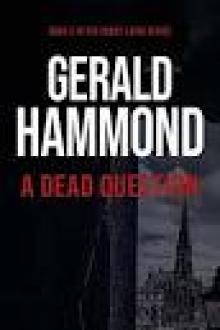 A Dead Question
A Dead Question Twice Bitten
Twice Bitten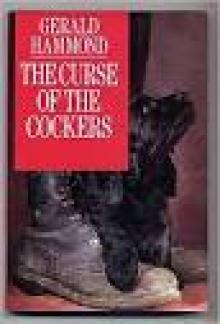 The Curse of the Cockers
The Curse of the Cockers In Loving Memory
In Loving Memory Illegal Tender (Three Oaks Book 12)
Illegal Tender (Three Oaks Book 12) Cold Relations (Honey Laird Book 1)
Cold Relations (Honey Laird Book 1)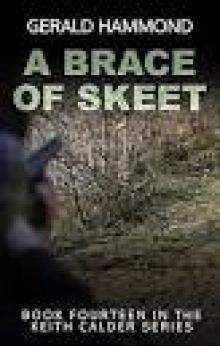 A Brace of Skeet
A Brace of Skeet Silver City Scandal
Silver City Scandal Sauce For the Pigeon
Sauce For the Pigeon Cold Relations
Cold Relations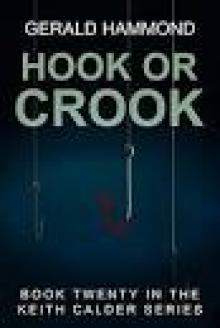 Hook or Crook
Hook or Crook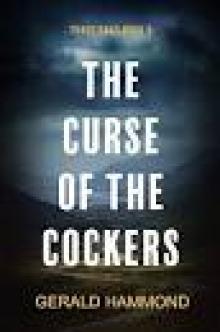 The Curse of the Cockers (Three Oaks Book 5)
The Curse of the Cockers (Three Oaks Book 5) Snatch Crop
Snatch Crop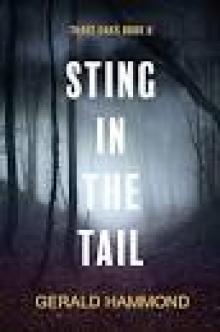 Sting in the Tail (Three Oaks Book 6)
Sting in the Tail (Three Oaks Book 6)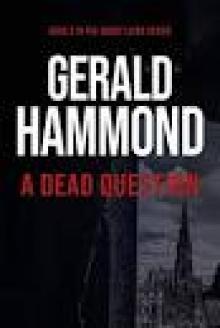 A Dead Question (Honey Laird Book 2)
A Dead Question (Honey Laird Book 2)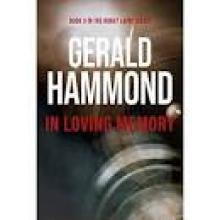 In Loving Memory (Honey Laird Book 3)
In Loving Memory (Honey Laird Book 3) Thin Air
Thin Air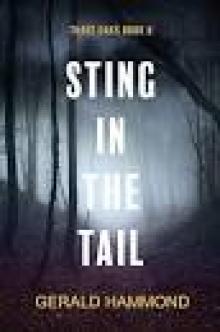 Sting in the Tail
Sting in the Tail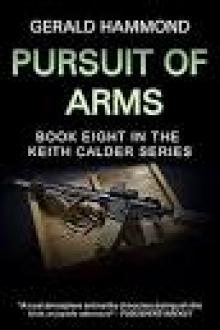 Pursuit of Arms
Pursuit of Arms The Game
The Game Give a Dog a Name (Three Oaks Book 4)
Give a Dog a Name (Three Oaks Book 4) Fair Game
Fair Game The Executor (Keith Calder Book 10)
The Executor (Keith Calder Book 10) Whose Dog Are You? (Three Oaks Book 2)
Whose Dog Are You? (Three Oaks Book 2) Mad Dogs and Scotsmen (Three Oaks Book 7)
Mad Dogs and Scotsmen (Three Oaks Book 7) Cousin Once Removed
Cousin Once Removed The Worried Widow
The Worried Widow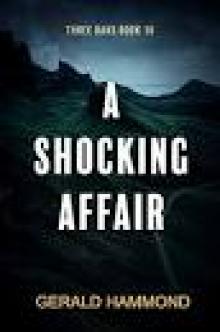 A Shocking Affair
A Shocking Affair Dead Weight (Three Oaks Book 11)
Dead Weight (Three Oaks Book 11) Whose Dog Are You
Whose Dog Are You The Revenge Game
The Revenge Game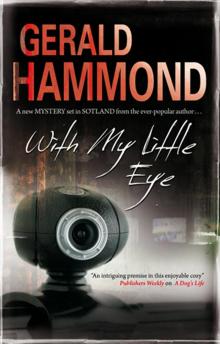 With My Little Eye
With My Little Eye Doghouse (Three Oaks Book 3)
Doghouse (Three Oaks Book 3)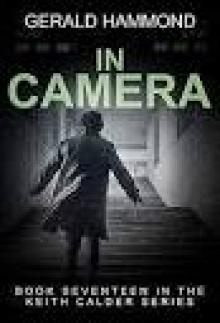 In Camera
In Camera Bloodlines (Three Oaks Book 8)
Bloodlines (Three Oaks Book 8)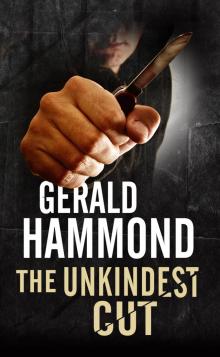 The Unkindest Cut
The Unkindest Cut